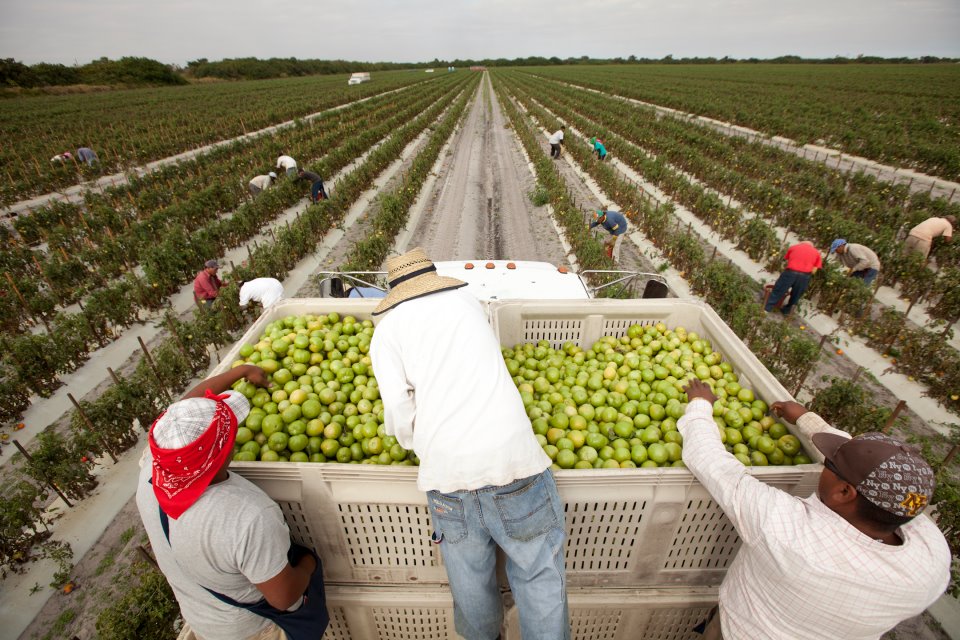
Editor’s note: We kicked off our first annual Food Loves Tech event last summer in Chelsea—here’s a recap. We’re bringing a taste of the food and farming future back this year, but just across the East River at Industry City. Leading up to the event, this story is part of about technology’s effects on our food supply.
From the ability to have everything from a burger to weekly groceries delivered at the swipe of a finger to the vertical farms reimagining agriculture, technology is changing everything about the way we eat. Many of those changes have been positive for consumers, but lately there’s been growing concern about how food workers fit into this new world.
Activists, scientists, financiers and policy wonks recently gathered for a CUNY Urban Food Policy Institute panel discussion on how technological advances will influence food workers in the next 10 years:
1. Can Everyone Be Their Own Boss?
“Incubators are part of the program to get businesses off the ground to create a network, create a space,” said Stacey Weismiller, a senior project manager at the New York City Economic Development Corporation. But while food incubators combined with the gig economy have made it easier for some to start their own businesses, others worry that the changing way food businesses start up may leave some out.
“It used to be a cash economy, a person would be selling their churros on the street and after a while put up a stand, maybe get a restaurant, but that’s disappearing and I don’t see anything that’s really meant to help those people, and I think that’s a real concern,” said Jose Gonzalez, director of data and research at New York Communities for Change.
2. Can Tech Be a Leverage for Better Jobs?
As companies invest in technology to help grow the workforce, most of the panelists believed that it would lead to the ability for workers to upgrade their jobs. “There might be an opportunity if these workers are working alongside machines in positive ways for those workers to to gain skills in terms of their ability to troubleshoot and do basic engineering, and that on-the-job training being a marketable skill,” said Julia Ticona a postdoctoral scholar at the Data & Society Research Institute.
3. Can Schedules Be More Flexible?
Scheduling workers, especially when so many food workers work more than one job, might be the most pressing issue facing food businesses today. New York City recently passed a law that requires employers give fast food workers their schedules two weeks in advance; that’s not the case everywhere, and Ticona said technology when used correctly should allow for workers to have greater control and flexibility over their schedules.
4. Can Tech Give Consumers Get a Greater Voice?
“If you have a 401K or some sort of structured investing setup, you have a say,” said Sebastian Vanderzeil, director and global thematic analyst at Cornerstone Capital Group. The panelists believe that whether it’s the treatment of workers or where the pickles in your meal delivery kit are coming from, technology has and will continue to give consumers more of voice.
5. A Questionable Commitment to Worker Privacy
“We don’t yet know what the commitment to worker privacy is, and that’s a risk,” Ticona said. As companies like Uber Eats become more popular and more workers use them, especially undocumented workers, it’s yet to be seen how companies will treat requests or pressure to share information they have on their workers, which often includes their location even when not working, banking and more.
https://youtu.be/QsxshsJyUno



